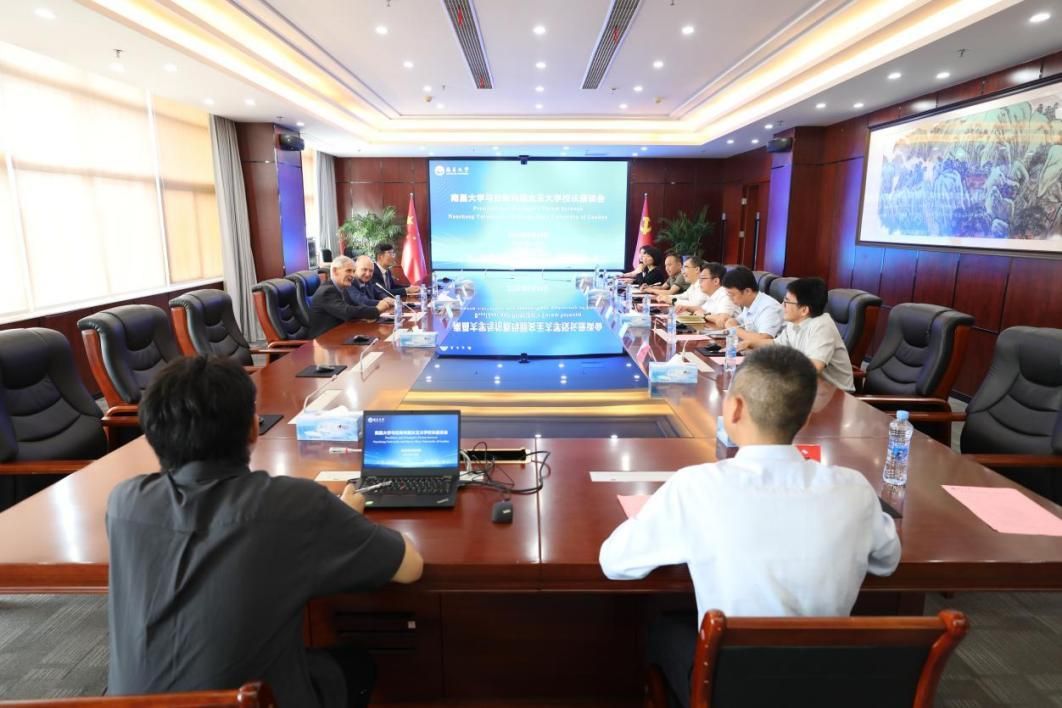
It was reported by the Queen Mary School that on the morning of June 20th, a meeting between the presidents of NCU and QMUL was held. The meeting aimed to deepen exchanges and cooperation between the two universities and further promote the sustainable development of their collaborative educational programs. Attendees included Professor Colin Bailey, President of QMUL and Fellow of the Royal Academy of Engineering; Professor Chen Yeguang, President of NCU and Academician of the Chinese Academy of Sciences; Professor Wen Wang, Vice President of QMUL and Fellow of the Royal Academy of Engineering; Professor Wang Li, Vice President of NCU; along with heads of relevant departments from both institutions.
President Chen Yeguang extended a warm welcome to President Colin Bailey and his delegation, and spoke highly of the achievements made through the long-standing friendly cooperation between the two universities. He stated that the NCU-QMUL Joint Program is a benchmark for NCU’s internationalization efforts. It carries the important mission of exploring medical education reform and is dedicated to promoting the integration and innovation of clinical medicine and biomedical science. Upholding the principles of openness, cooperation, and mutual benefit, NCU aims to cultivate physician-scientists proficient in both clinical practice and scientific research, having already trained a large number of outstanding talents widely recognized by society. He expressed anticipation for the early establishment of the Sino-British Joint Education Institution.
Professor Colin Bailey congratulated NCU on its recent development achievements and expressed strong confidence in the teaching and research collaboration between the two universities. He stated that building upon the in-depth cooperation and extensive experience gained from previous joint initiatives, it is crucial to further expand exchanges and collaboration. He expressed hope that both sides will continue comprehensive and close cooperation in the future, reaching more consensus on optimizing the operational mechanisms of the institution, innovating talent cultivation models, improving curriculum systems, and exploring new models for research collaboration, thereby achieving further significant results from the joint educational endeavors.
This meeting served as an important occasion for both universities to summarize their cooperative experiences and plan for future development. Both sides will accelerate the establishment of the Sino-British Joint Education Institution, playing a significant exemplary and benchmarking role in exploring high-level, innovative models for international cooperative education, and jointly writing a new chapter in Sino-British higher education exchanges and cooperation.




